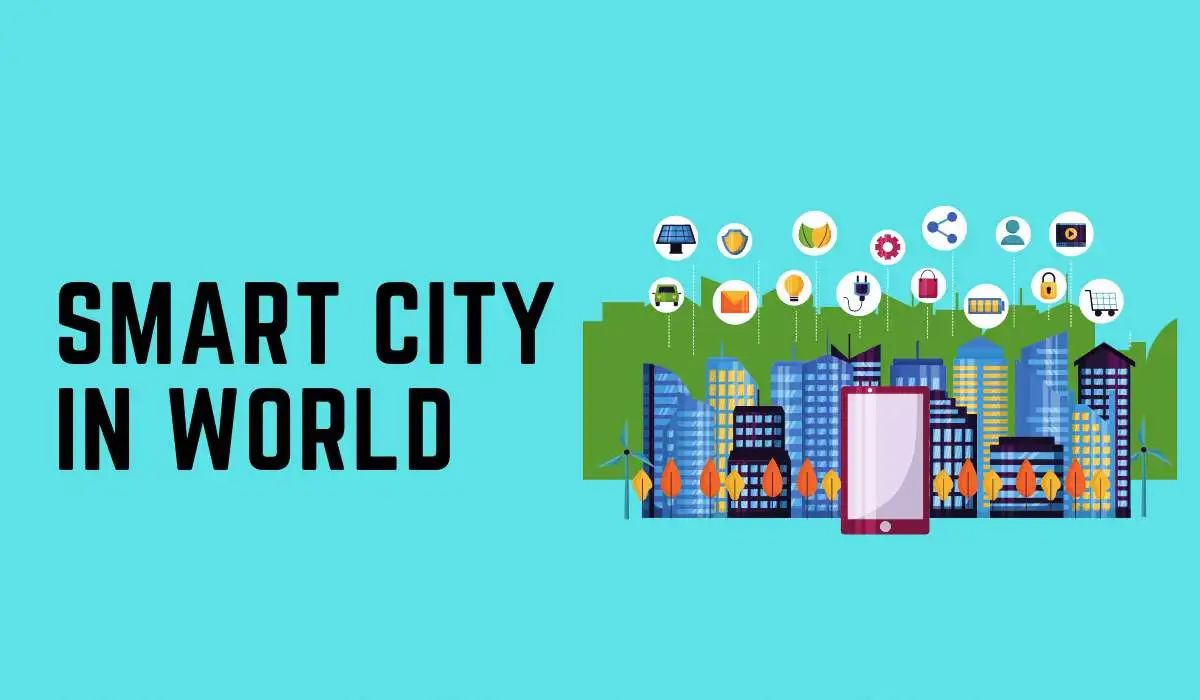Smartest city in the world
What do you think the smartest city in the World is? Is it New York, London, or Tokyo? All great guesses, but the answer may surprise you. It’s none of those. Smart cities use technology to make life better for their citizens. They use sensors and data to improve public services’ availability and reduce waste.
If you’re interested in learning more about these amazing cities, keep reading! We’ll show you what makes them so smart!

What are smartest cities in the world?
A smart city is a city that uses technology to make life better for its citizens.
Smart cities use sensors and data to improve the availability of public services and reduce waste.
For example, in Copenhagen, they use sensors in recycling bins that detect when trash has been placed in them, then they send an email to the person who threw out the trash, notifying them when their bin will be collected.
There are many benefits to living in a smart city.
Cities like Rio de Janeiro and San Francisco have seen reductions in crime and traffic accidents due to their access to real-time data via sensor networks.
Additionally, people can get information about events or locations near them by using smart city technology.
One of the most popular features of smart cities is the ability for residents to find parking spaces using their smartphones!
Smart cities can also help communities recover from natural disasters such as Hurricane Maria by providing electricity and communication lines faster than traditional methods.
Top 10 Smartest City in World 2022
1. Singapore
2. Zurich (Switzerland)
3. Oslo (Norway)
4. Taipei (Taiwan)
5. Lausanne (Switzerland)
6. Helsinki (Finland)
7. Copenhagen (Denmark)
8. Geneva (Switzerland)
9. Auckland (New Zealand)
10. Bilbao (Spain)
Singapore

The smartest city in the World is Singapore.
The government of Singapore has an advanced program called “Smart Nation” that uses sensors (which are used for data collection) and data analysis to make life more convenient for citizens.
For example, traffic sensors can help you know how long it will take to drive somewhere on a given day at a certain time.
In addition to making life easier for citizens, this technology also helps the government collect information about their citizens.
This allows them to understand better what services they need and make plans for future projects in their country.
Singapore is one of the wealthiest countries in the World, which is one reason why they have been able to implement these programs successfully.
They also have a higher percentage of people working in science and technology than most other countries, making them ideal for developing these technologies.
Zurich (Switzerland)
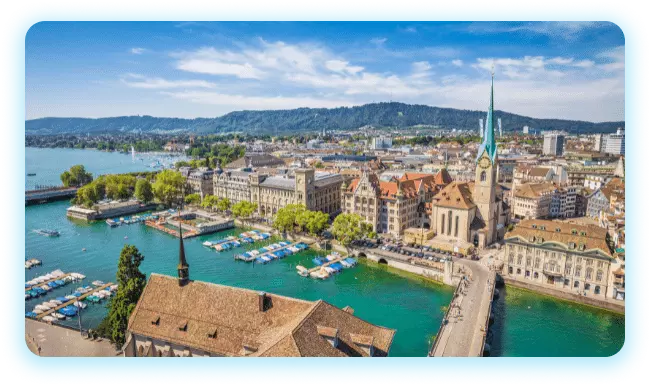
The smartest city in the World Switzerland
If there’s one thing Switzerland is known for, it’s being a leader in innovation.
It’s no surprise then that Zurich is ranked as the smartest city in the World.
The city government, public utilities, banks, schools, hospitals, and police use sensors to improve efficiency.
For example, traffic lights are synced with GPS data, so they change when fewer cars are on the road.
When people cross the street safely without getting hit by a car or tram, sensors detect it, and it becomes safer to cross.
They have also installed air quality sensors throughout the city to know how clean it is.
These sensors help people avoid areas with high particulate matter and smog levels.
And if you’re interested in finding an apartment in Zurich, they’ve got plenty of those too!
Oslo (Norway)

The smartest city in the World is Oslo, Norway!
First of all, it has the fastest internet in the World.
The average person’s download speeds are 220 Mbps, faster than most people in America who have speeds of 100 Mbps.
But that’s not all!
Oslo also has the most charging stations for electric cars per capita out of any country in the World.
That means that if you drive an electric car, Oslo is a great place to live with its high number of charging stations.
And lastly, it has sensors that track pollution levels.
As you can see, there are many reasons why this city is smarter than any other city in the World!
Taipei (Taiwan)

Taipei, Taiwan, is the smartest city in the World.
It was recently crowned by the Center for Strategic and International Studies as the smartest city.
Why?
Taipei is a smartest city because it has many sensors and data points that it uses to improve public services and reduce waste.
For example, Taipei has sensors that monitor air quality and noise levels.
The city then uses that information to create an air pollution warning system.
When air pollution levels reach a dangerous level, Taipei’s monitoring system will warn anyone nearby who may be impacted by it.
They also have an automatic garbage disposal system that converts trash cans into recycling bins.
If you throw something away in one bin, it goes to a recycling plant, so you can’t litter anymore!
The bins work with sensors to know when something has been thrown away.
The sensor-driven systems in Taipei help keep their environment clean and save money on labor costs because fewer workers are needed to check on those systems manually.
We hope you learned about this amazing city and why it’s such a great example of what makes a smart city!
Lausanne (Switzerland)
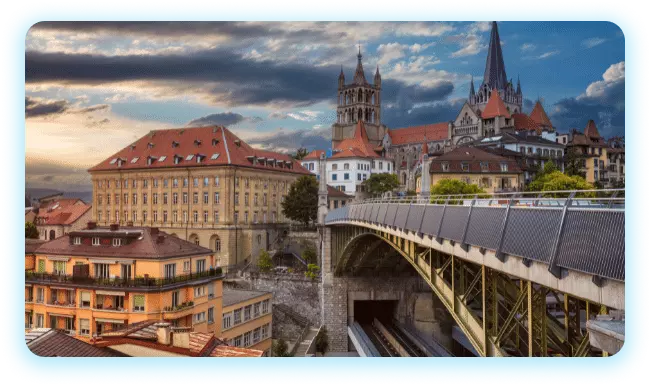
Many cities in the world use technology to improve their citizens’ lives, but Lausanne is one of the most notable.
It is a city in Switzerland rated as the smartest city in the World.
What sets Lausanne apart from other cities? First, Lausanne is one of the most livable cities in Europe, with a beautiful landscape and an excellent quality of life.
And it’s ranked as having one of the best digital infrastructures in Europe.
All these things make Lausanne a smartest city.
Lausanne is a leading example for other cities because it integrates its technological infrastructure with social and economic development strategies to create an inclusive and sustainable society.
This means that Lausanne measures its success by looking at factors like how well it serves all members of society, not just those with access to technology.
In this way, Lausanne truly epitomizes what makes a city “smart.”
Helsinki (Finland)
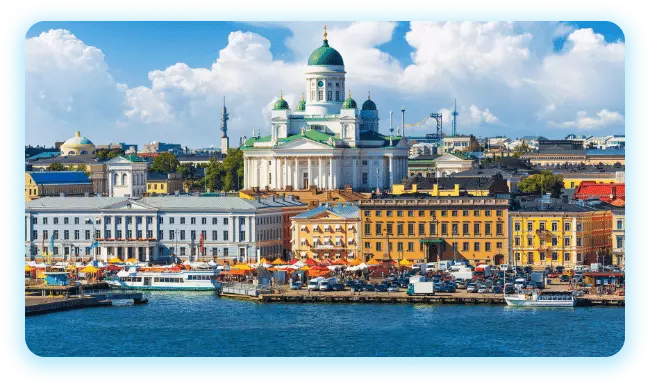
The city of Helsinki may not be the first One that comes to mind when you think of a smart city, but it’s one of the smartest cities in the World.
It has a smart traffic system and uses sensors and data to monitor conditions and provide real-time information about traffic flow.
Helsinki also places a high emphasis on recycling, with containers at schools and apartment buildings for easy sorting.
The city also has an extensive bike path system to encourage biking as a mode of transportation.
Copenhagen (Denmark)
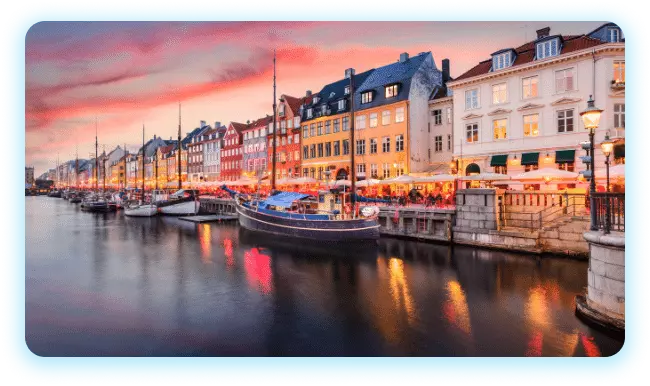
This Scandinavian city has been listed as the World’s most livable city for more than a decade, and it is often cited as the smartest city in the World.
One of Copenhagen’s main industries is green design, which they’ve used to create a sustainable and healthy environment.
They do this by investing in green energy and recycling programs, among other things.
Copenhagen is a great example of a smart city that uses technology to improve its citizens’ lives.
It proves that not only will people respond to technology when it’s implemented properly, but it also proves how important smart cities are in the future.
Geneva (Switzerland)

Geneva is the smartest city in the World.
It’s also the second-largest French-speaking city in the World!
We’re not surprised that it’s so intelligent, considering its bilingualism.
Geneva has a population of about 175,000 people, and it’s situated on Geneva Lake.
This lake is one of the most important bodies of water in Europe, with about 20 million tourists visiting annually!
It’s also one of the most popular conference centers in the World.
Auckland (New Zealand)
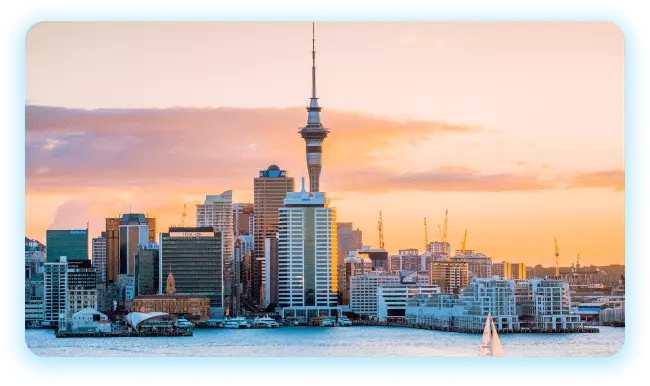
Auckland, New Zealand, is the smartest city in the World.
It became one of the first cities to use smart technology in 1996.
The city’s intelligent transport system (ITS) monitors traffic and adjusts traffic signals to keep people moving.
They also use sensors to detect pedestrians and cyclists who have their phones out to be found if they are hurt or lost easily.
ITS uses location-based analytics to optimize energy use by providing accurate data about using facilities like street lights or heating systems.
This way, the city only spends money when it knows it will benefit citizens.
Bilbao (Spain)

Bilbao, Spain, is considered the smartest city in the World.
The city has a mixture of old and new buildings, which gives it a unique look.
It’s also home to many startups working to improve Bilbao’s life through technology.
People in Bilbao are working on projects that hope to make their city an even better place for all of its citizens.
How Smart Cities are changing the world
Many of the smart cities we’ll see in the future will use data to radically transform their operation. For example, they will use data from transportation systems to alert authorities to congestion.
This should be especially helpful when you consider that driving is often a waste of energy. If electric cars are charging at your home, these intelligent streets will know that and adjust your electricity usage accordingly.
Moreover, cities will employ intelligent meters to ensure that residents’ monthly utility bills aren’t excessively high. These meters will provide real-time energy data so you can plan your energy purchases to save money.
But how will intelligent cities change our lives? In a word: efficiency.
Smart cities can decrease the demand on the grid and save you money.
Why do we need Smart Cities?
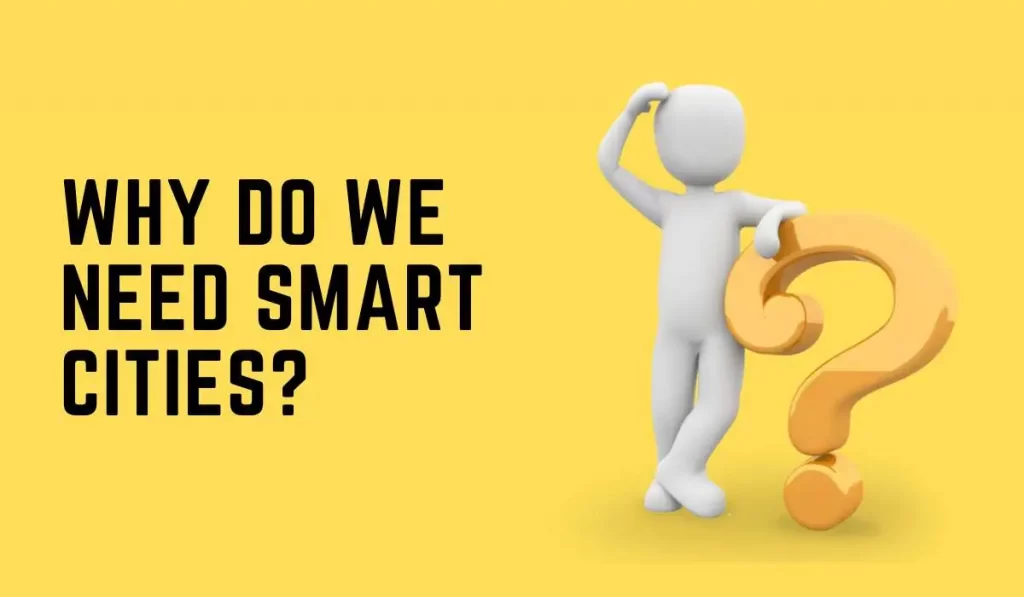
Every day people face challenges, and most of them will have fewer resources, less control, and fewer rights than they would in an ideal world.
Governments and companies must deal with these difficulties, often at a higher cost than the government should pay, by using less-safe technology or using more resources and energy, both of which are destructive to the environment.
Many industrialized countries have devoted substantial effort and money in recent years to creating Smart Cities to address poverty, inequality, climate change, education, healthcare, and other issues.
While some cities have only recently started to build out their intelligent networks, the World Bank has estimated that the world will need an additional $1.
The benefits of a smart city
In a smart city, the data from sensors can predict traffic patterns and optimize transport routes.
With this data, cities can better plan for future transport needs.
This data also helps cities monitor air quality and population density.
Sensors can be used to detect diseases or other health problems like asthma.
These technologies also help city planners better understand how people live in the area.
Some other benefits of smart cities include:
– Smart cities are more eco-friendly because they use less energy because of the efficient sensor networks.
– They are safer by integrating technology into security systems like CCTV cameras, which allows citizens to feel safer in public spaces because the authorities can keep them under surveillance at all times.
Citizens can easily access information about buses, trains, or other modes of transport because apps exist that help them do so.
– There is greater stability because power outages are less likely if there is an integrated power grid with sensors that monitor electricity levels and send alerts when things go wrong.
What to Expect in the Future of Smart Cities?
The future of smart cities is looking bright!
With the help of technology, cities are becoming smarter and more efficient.
One way to make a city smarter is through wireless sensor networks.
These sensors allow smarter water management, better traffic flow, and less waste.
Another way to make a city smarter is through internet-connected devices like smart streetlights or public transportation systems.
These technologies are already being used in many cities around the World, but they’re still in their early stages.
As these technologies continue to develop, more people will likely enjoy the benefits of living in a smart city.
How to measure the success of a smart city
There are many ways to measure the success of a smart city.
One of the most popular is tracking the number of people who volunteer in a given city.
This data can indicate how well a city is doing at creating a sense of community.
Another way to measure the success of a city is by examining how much use it has for social media, such as Twitter and Facebook.
If people living in the city have an active presence on social media, they might feel connected to their community or have a sense of pride in their city.
Things to Consider When Creating the Smartest City
One of the most important things to consider before creating a smart city is what your city lacks.
What are the problems that need solving?
Then, you can start brainstorming solutions to those problems.
For example, one of the biggest issues with many cities is traffic congestion.
So, if your city had this problem, you would want to focus on ways to reduce traffic.
One way to do this may be by using sensors on freeway entrances and exits (this could be done with some relatively inexpensive technology).
This would make navigating the freeway more efficient and help reduce congestion.
Smart cities are all about making life better for citizens through innovation and technology.
If you’re interested in starting your smart city initiative, look at what your city lacks and think of ways to solve it!
Conclusion
As more and more cities are adopting smart city initiatives to address the challenges of the 21st century, it’s important to keep in mind what makes a city “smart” in the first place.
This article lists the ten smartest cities in the World, based on data from the United Nations, The Economist Intelligence Unit, and other sources.
The benefits of smart cities are many, including sustainable development, increased safety, less traffic, better public health, and more.
To measure the success of a smart city, one should look for improvements in these areas.
For example, decreased traffic can be measured by examining changes in the number of people who take public transportation or carpooling.
New York (12th) is the top performer in North America. On the other hand, Abu Dhabi (28th) is the highest-ranking city in the Middle East. At the same time, Moscow (54th) is the highest-ranking city in Eastern Europe, Buenos Aires (98th) is the highest-ranking city in Latin America, and Cairo is the highest-ranking city in Africa (104th).
The Institute for Management Development (IMD) in Lausanne, Switzerland, and the Singapore University of Technology and Design collaborate to create the Smart City Index (SUTD). The research rates 118 cities worldwide based on individuals’ impressions of how technology may improve their lives, as well as economic and social data from the United Nations Human Development Index.
If you like this article, please share it and provide comments, as well as read the following: The Top 10 Smart Cities in India 2021
